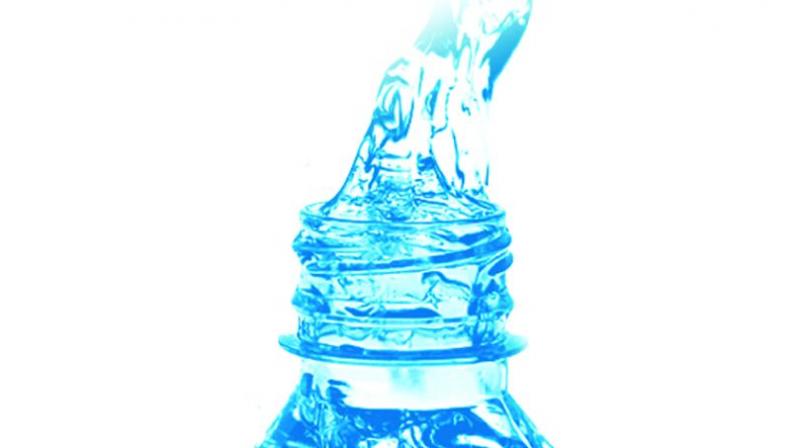Call to conserve water gets louder in Hyderabad

Hyderabad: On International Water Day today, environmentalists draw attention to the lack of public awareness to conserve water.
The South African city of Cape Town is said to run out of water by April 12. A city of four million people has 200 water collection points from where residents line up to collect water - just 25 litres per person per day.
In India, such an acute situation does exist in many areas in many cities, but because of the inequitable distribution of water - well-off areas of a city get much more water then poor areas - the crisis isn’t apparent.
Anmol Roy, an environmentalist says, “Our carelessness is causing our water reservoirs to shrink. I began campaigning against water wastage after I met a man in the slums of Mumbai who had to pay to use a bucket of water and he would use only one-fourth of that bucket to make sure that his daughter could use the rest of it for the whole day. It broke my heart that buckets of water are wasted be it for washing cars, watering plants and others that do not need lavish usage.”
This year’s theme is ‘Nature for water’ that focuses on encouraging people to look for nature based solutions to reduce floods, drought and water pollution. Climate change and garbage dumping in water sources are among the reasons for the loss of freshwater sources.
“We try to ensure that most freshwater sources in the green areas remain so. But it is sad to note that most sources are drying up and we have to artificially create water points for animals. The pollution in most water sources is also irreversible.
Dumping of plastic and others materials by visitors reacts badly to the water and no matter how much you clean it, it cannot go back to being a pristine source of fresh water,” says a senior forest official.
Existing freshwater resources should be prioritised, says environmentalist Samuel Veda. “We should work towards cleaning our water bodies and making sure that we spread awareness about water conservation. Only a systematic method can ease water troubles despite the growing urbanisation and population. Recycled water should be stored and used more in the urban set-up.”
Clean water source to be a dream: Experts
With most of the state’s freshwater lakes being polluted, a clean water source is a distant dream. With dwindling rain patterns, every drop matters.
Abdul Mujeeb, a rain water harvester from Sainikpuri says, “The amount of rain we receive has definitely decreased because of the weather change. On a rainy day, I can store up to three buckets now and I keep urging all my family and friends to do the same. It does not require a lot of hard work apart - just keep buckets on your terrace. Imagine the water you can save if you utilise the same for your household purposes.”
He says TS’s decision that all residential complexes must have water harvesting plants is a good idea but it must be strictly implemented.
An official from the urban development project says, “With summer drawing closer, people will face water scarcity. It is not unusual for our country to face shortage in summer but when there is less water even after the hot season, one should worry. And that is what is happening. Water is being sold at a higher price in rural areas during the summer which we are trying to put an end to by encouraging people to save water.”
Pollution of water bodies by industries and citizens is also on the rise. Tan Zi Xi, a Singapore based artist who created the ‘Plastic Ocean’ installation, shows the ocean from a fish's point of view.
The artist told DC: “Pointing a finger at someone is difficult. The trash in the ocean is not just due to mere littering; even waste trucks dump into water bodies. The truth is that we produce more waste than we can manage. It is no longer easy to dump, burn, incinerate or manage waste.” She says India is one of the developing countries that needs to fix its plastic waste disposal system.
Kumar Pathak, EE, Pollution Control Board, says most freshwater lakes have become garbage dumping grounds. "The stench that comes from these bodies is not just from industrial effluents. We are also responsible for the same. When we shut our eyes to the littering happening in our water bodies, it makes it irreversible. More cleaning drives should be organised and citizen participation is required."

